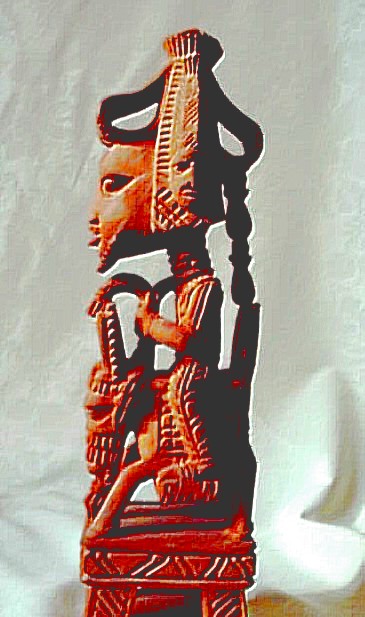|
|
7th Sunday How forgiving am I?
|
Last Sunday I was talking about Paul and his pastoral style and what that said about the nature of Christian life. The second reading last Sunday was from the first letter to the Corinthians. Today we have a passage from the second letter to the Corinthians and we can do a somewhat similar thing. (A technical point: the second letter to the Corinthians, in the opinion of virtually all scholars, is made up of a bunch of letters that they just kind of stuck together. Some people think that there are as many as seven of them. But they all have the same tone and they all deal with the same problem, which is probably why they were put together.)
What was going on in Corinth? A group of missionaries had come from the mother church in Jerusalem, saying that Paul was basically a fraud, an opportunist, unworthy and unstable. (That wonderful, idyllic picture that we get from the Book of Acts of all these Christians loving each other like mad is not the case.) Not only was this the city of Corinth, a fairly rough and tumble place, but so was the early Christian movement. Remember, that this is Christian versus Christian. A little footnote. When I had more clerical company than I do right now, there was a kind of byword among clergy that jealousy is the equivalent of physical lust among the clergy. I think that's true. That seems to have played a part in the response of these people who set out to discredit Paul in the community that he, himself, had founded.
Now God knows there are plenty of clerical opportunists in the world but it is interesting to see how Paul deals with this. So, he does what he always does. He looks to the example of Jesus to settle the thing and he says that Jesus, of course, was God's "Yes" to the promises that God had made. Not that Paul thought that Jesus was divine. That came later. That was post-Pauline as a matter of fact. But, clearly, Paul saw in Jesus the affirmation of all the promises that God had made to the Jews and to the world: namely, this radical openness to everybody. This, of course, was a very contentious point in the whole new Christian movement. It was a Jewish reform movement, basically. And so the big question was: how Jewish do you have to be? Do you have to be circumcised? Do you have to keep kosher (which was the problem that we saw last week)? And Paul said, “No. All those things make sense in their own time but something new is going on with Jesus, this Jew.” Because it was still an entirely intra-Jewish thing. What is that new thing? What is that promise that God had made? As I said a minute ago, it was that, through the Jews, everybody was to receive the presence of God.
And so, Paul even goes further and says, “I am not vacillating either. I am not here to take advantage of anybody or to con anybody. The accusation of opportunism is absolutely misplaced, in my case.” This is the same person who will say that “I am crucified to the world and the world is crucified to me.” Not much opportunistic thought in that self-description.
We see, of course, echoes of this in the gospel of Mark where this whole business of the forgiveness of sins comes up. The gospel of Mark doesn’t come to the point of seeing Jesus as divine but rather as seeing Jesus precisely doing what Paul said in this second letter to the Corinthians, being God's "yes". What does Jesus do? Jesus forgives sins. Which is precisely what God had promised to the world, to the Jews. So, Jesus as God's agent, Jesus as God's "yes", this man who saw himself as absolutely affirmed by God, could act in the name of God: to forgive sins.
All this is nice, mildly interesting, safe. Until I begin to ask myself "How forgiving am I?" How opportunistic am I? These are all things, which obstruct our relationship with each other. But as long as we keep them at a fairly high level of abstraction, we are safe. When we get to the particulars, then the problems appear and the centrality and the reality of Jesus becomes clear as well. We are called as Christians to be precisely that, Christ- like.
